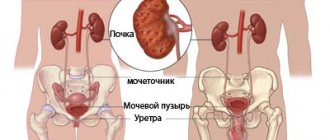Pain in the upper part of the stomach is a dangerous symptom that is a harbinger of many dangerous diseases. There are many reasons for this condition to occur. Unpleasant sensations can overtake you suddenly and pass quickly, or they can annoy you for a long time.
Despite the intensity and accompanying symptoms, any health problems must be addressed. Abdominal pain can be an indicator of various conditions, which we will discuss below.
Causes of pain
A gastroenterologist will help you return to an active life.
Unpleasant sensations in the upper abdomen can occur for various reasons. This may be eloquent evidence of the presence of pathology of internal organs.
Problems with the stomach and intestines can cause spasms and pain. A person suffers from cramping, burning, pulling or pressing pain. Contacting a gastroenterologist will help you return to an active life.
Unpleasant sensations are possible due to stretching of the organ capsule, which resembles a dense shell paved with connective tissue. A tumor, injury, or inflammation can be a trigger that causes the capsule to stretch. The severity of symptoms can range from moderate to severely painful.
If the capsule ruptures, the patient's condition worsens. Poor circulation can also cause these conditions. Atherosclerotic lesion, blockage of a blood clot is responsible for the deterioration of the condition.
Irritation of the mucous membrane may be accompanied by pain in the peritoneum; here an excessive number of nerve endings or any aggressive influence contributes to the deterioration of the condition. When a diagnosis of “acute abdomen” is made, the issue of hospitalization of the patient is decided. This dangerous condition can have disastrous consequences.
A feature of the nervous system can cause pain to radiate from other areas of the body to the specified segment. In a situation with referred pain, the patient can indicate a place with more intense unpleasant sensations.
Bowel cancer: signs and first symptoms, the need for early diagnosis of the disease
Colon cancer is a malignant disease with tumor localization in the small or large intestine. According to statistics, this pathology is considered one of the most common cancers in both men (2nd place after lung cancer) and women (3rd place after breast cancer and malignant neoplasms of the bronchopulmonary system). Therefore, knowledge of how intestinal cancer manifests itself, the symptoms of the disease and timely diagnosis of a malignant tumor are of particular importance.
Signs and symptoms of bowel cancer largely depend on:
- on the location of the tumor (small or large intestine);
- from its cellular structure;
- growth pattern, tendency to metastasize;
- forms and stages of the disease;
- gender and age of the patient.
Most often, a malignant neoplasm is localized in the natural bends of the large intestine, which is associated with prolonged stagnation of feces, the formation of microtraumas, cracks, and in their place, under the influence of unfavorable factors, cell degeneration and the formation of pathological malignant growth occur.
An important etiological factor is benign intestinal neoplasms - adenomatous polyps or inflammatory and ulcerative processes (colitis, Crohn's disease), which, as a result of cell mutation, can transform into malignant tumors.
A special place among the risk factors for the development of intestinal cancer is heredity - the presence of benign or malignant neoplasms in blood relatives.
Also at increased risk of developing bowel cancer are:
- alcoholics and smokers;
- patients with chronic infectious and inflammatory bowel diseases (dysbacteriosis, irritable bowel syndrome, chronic constipation, ulcerative colitis, congenital anomalies of the small and large intestines);
- people who are constantly in contact with chemical carcinogens and/or have occupational hazards.
Therefore, early diagnosis of intestinal cancer in patients at risk is most important, especially in the presence of the first signs of the disease in persons with a family predisposition, in persons with diagnosed intestinal polyps, suffering from chronic constipation, Crohn's disease and other diseases of the digestive tract.
Signs of the disease in the early stages
Symptoms of intestinal cancer at an early stage are not specific, but based on their totality, the development of the disease can be suspected.
Bowel cancer - first symptoms and manifestations:
- general weakness;
- decreased appetite and aversion to meat foods;
- signs of anemia: increasing pallor, persistent headaches, dizziness;
- unpleasant taste in the mouth, belching, heartburn;
- periodic cramping pain in the abdomen (localization often depends on the location of the tumor);
- nausea and occasional vomiting;
- the appearance of low-grade body temperature or an increase in temperature to high numbers (in most cases for no apparent reason);
- constipation or alternating constipation and diarrhea;
- bloating and attacks of intestinal colic;
- periodic appearance of mucus, blood or pus in the stool.
The first signs and symptoms of intestinal cancer in women and men do not have specific differences, but as the tumor grows, different developments in symptoms are noted:
- in men, a malignant neoplasm grows into the prostate and bladder, causing difficult and painful urination, the appearance of blood in the urine, nagging pain in the lower abdomen, radiating to the perineum and genitals;
- in women, the tumor more often grows into the uterus, vagina and anal canal, therefore it can manifest itself as pain during intimacy, nagging pain in the lower abdomen, menstrual irregularities, and in later stages the formation of retrovaginal fistulas is noted, which is manifested by the release of gases and feces into the vagina.
Forms of bowel cancer
The primary signs of intestinal cancer are determined by the location of the tumor: small or large intestine.
Small intestine cancer - symptoms and manifestations:
1. the presence of persistent and prolonged dyspeptic symptoms:
- nausea;
- belching;
- heartburn;
- bitterness in the mouth;
- vomit;
2. pain mainly in the upper and middle parts of the abdomen, which is cramping or aching in nature;
3. persistent loss of appetite, weight loss, aversion to certain foods (usually meat);
4. the appearance of dark stool, subsequently intestinal bleeding;
5. constipation, with large tumor sizes - signs of intestinal obstruction.
Initial symptoms and signs of colon cancer:
- bloating, flatulence, intestinal colic, initially with relief of symptoms after defecation;
- frequent urge to defecate (tenesmus), in most cases unproductive;
- incontinence of gases and then feces;
- blood in the stool in the form of scarlet streaks, often taken by patients as an exacerbation of hemorrhoids;
- persistent loss of appetite, weight loss;
- nagging or aching pain in the abdomen;
- the appearance of mucus and/or pus in the stool;
- increase in body temperature from low-grade to fever.
Signs of intestinal cancer in the early stages depend on the form of the disease:
1) stenotic intestinal cancer is manifested by persistent constipation, intestinal colic, and the first manifestations of this form of the disease are considered to be bloating of the intestine with relief after defecation;
2) the enterocolitic form is manifested by alternating constipation and diarrhea;
dyspeptic type of disease is manifested by persistent heartburn, bitterness in the mouth and belching;
3) the anemic form is manifested by weakness, increasing pallor, persistent headaches, dizziness, darkening of feces and, over time, the appearance of blood in the stool;
4) pseudoinflammatory type of bowel cancer manifests itself:
- severe cramping pain in the abdomen of unclear localization;
- nausea;
- vomiting;
- low-grade fever or fever;
- chills and pain in muscles and joints;
- The cyst form has symptoms of diseases of the urinary system: pain and pain when urinating, blood in the urine.
Diagnostics
Let's look at the question of how to diagnose bowel cancer. For this purpose the following is carried out:
- collection of complaints and the course of the disease (what are the symptoms of intestinal cancer, their duration), examination of the patient, palpation;
- laboratory tests: blood test, urine test, stool test for occult blood, determination of tumor markers);
- instrumental studies (MRI, CT, ultrasound, colonoscopy, irrigoscopy).
A special place among diagnostic methods is occupied by endoscopic examination of the large intestine - colonoscopy, which allows, using a flexible probe with a miniature video camera, to conduct a complete examination of all parts of the intestine. This imaging method is most effective if the development of a malignant neoplasm in the intestine is suspected. Diagnosis of intestinal cancer in the early stages by endoscopic examination of the patient using intravenous sedation - introduction to short-term sleep allows for painless manipulation, which is important for both the patient and the doctor. Also, if necessary, the specialist performs a tissue biopsy, polyp removal, stopping bleeding or removing a foreign body.
Our clinic’s specialists use new generation endoscopic equipment that has high image quality with the ability to perform narrow-spectrum endoscopy in NBI mode, which significantly increases the ability to both identify intestinal cancer and its symptoms, and prescribe timely and correct treatment for this disease.
The most common causes of acute gastritis are:
- food poisoning;
- rotavirus infection;
- Helicobacter pylori (Helicobacter) infection;
- irregular meals;
- poor quality food;
- binge eating;
- inadequate chewing of food;
- errors in food in the form of spicy (vinegar, pepper, mustard), hot, greasy;
- excess food chemicals (chips, mayonnaise, ketchup, fast food);
- long-term use of certain medications.
The causes of damage may also be:
- liver and biliary tract diseases;
- pancreatic diseases;
- vascular diseases;
- kidney disease;
- blood diseases;
- anemia;
- diabetes.
Calm the nerves and intestines: flatulence due to nervousness
However, rapid breathing and, as a consequence, an increase in the volume of swallowed air can also occur due to nervousness. Air enters the gastrointestinal tract along with food and swallowed saliva4. With neuroses, mental and emotional stress, increased salivation is observed1. As a result, the amount of gas produced in the intestines increases, causing flatulence.
Why is it important to calm your nerves when you have an intestinal disorder?
There is no consensus among scientists on the issue of a single mechanism for the development of flatulence due to stress, but there is no doubt that psycho-emotional states influence the manifestation of a complex of irritable bowel symptoms.
Although flatulence may not be a symptom of a serious illness, this condition definitely causes psychological and emotional discomfort. Even manifesting itself as an independent intestinal disorder, flatulence is accompanied by such unpleasant manifestations as an increase in the volume of the abdomen, noticeable even visually, rumbling, and the release of gases4.
All these manifestations of flatulence cause not only discomfort, but also a feeling of shame and guilt. As a result, the psychological state that causes bloating is exacerbated by stress due to “shameful” and embarrassing symptoms, leading to social isolation and reducing quality of life4. A “vicious circle” arises in which constant stress will provoke the resumption of unpleasant manifestations of bloating. Therefore, you can break this circle only by returning peace of mind.
What other bowel problems can stress cause?
There is a connection between the psychological state and bowel function: emotional and nervous shocks can lead to flatulence. The so-called “bear sickness” can often occur – sharp painful spasms and bouts of diarrhea due to stress4. With stress, not only flatulence can occur, but also other disturbances in the functioning of the intestines - stool disorders (diarrhea or constipation), cramps, bloating. If these intestinal conditions do not occur individually, but in a complex manner, then they should be considered not as separate independent phenomena, but as symptoms of one general disorder of the intestines - irritable bowel.
The causes of an irritable gut are often attributed to interactions between the gastrointestinal (GI) tract and the central nervous system (CNS)5. Other psycho-emotional factors predisposing to irritable bowel include impaired coping ability and lack of social support5. The combination of these factors causes the development of intestinal hypersensitivity, which begins to overreact to even the most insignificant stimuli from food entering the gastrointestinal tract5. Combined with increased attention to symptoms and anxiety, gut hypersensitivity leads to an increase in the severity of irritable bowel symptoms.










